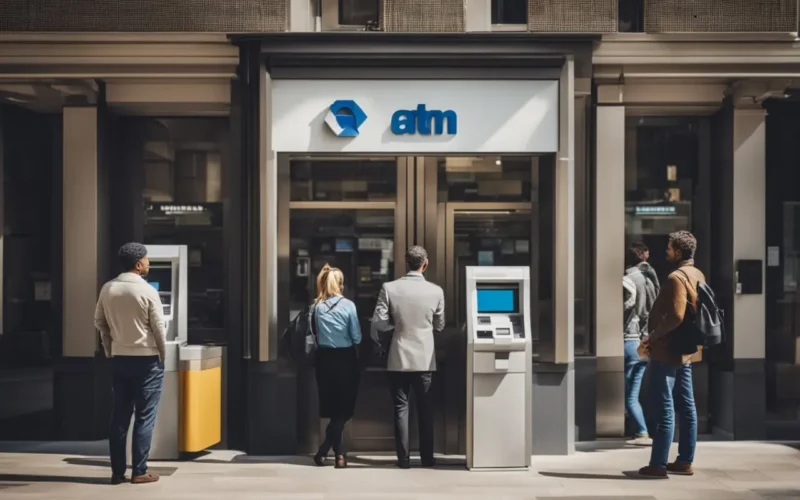Key Takeaways
- SBI IFSC Code is vital for secure electronic fund transfers.
- Online platforms provide easy access to locate IFSC codes.
- Reserve Bank of India regulates the system for consistency.
The State Bank of India (SBI) plays a crucial role in the Indian banking sector, especially when it comes to electronic funds transfers. Every branch of SBI is assigned a unique code known as the Indian Financial System Code (IFSC). This code is essential for carrying out seamless transactions across platforms like NEFT, RTGS, and IMPS. The SBI IFSC Code, an 11-digit alphanumeric code, ensures accurate and secure electronic payments.
For those looking to locate the IFSC code for a particular branch, there are several ways to obtain this information. Online resources, as well as the official State Bank of India website, provide a comprehensive list of all IFSC codes. By selecting the state, district, and branch, users can access the IFSC code needed for their transactions. This code not only aids in transferring money but also identifies the branch location within the vast network of SBI.
Incorporating the SBI IFSC code into financial activities ensures that funds are transferred without any hitches. This code is regulated by the Reserve Bank of India (RBI) to maintain its integrity and consistency across all banks in India.
Check: SBI Bank Account Opening guide.
Understanding IFSC and its Role in Fund Transfers
The Indian Financial System Code (IFSC) is essential for facilitating electronic fund transfers in India. It plays a pivotal role in transactions such as NEFT, RTGS, and IMPS, ensuring accurate routing of funds.
Basics of IFSC and SBI Bank IFSC Codes
The IFSC code is an 11-character alphanumeric code that uniquely identifies each bank branch in India. The code is vital for processing electronic funds transfers, such as NEFT, RTGS, and IMPS. Each bank and its branches have distinct IFSC codes to ensure the correct routing of transactions.
For the State Bank of India (SBI), the IFSC code format starts with “SBIN,” followed by a zero and a specific branch code. This uniquely identifies every SBI branch across the country. The IFSC code ensures that funds reach the designated account safely and efficiently.
Check: SBI Bank Balance Check Number.
Usage of IFSC in Different Transfer Types
IFSC codes are used in various types of fund transfers, such as NEFT (National Electronic Funds Transfer), RTGS (Real Time Gross Settlement), and IMPS (Immediate Payment Service). Each method has its own process and benefits.
In NEFT, funds are transferred in batches, making it suitable for transactions without urgency. RTGS is ideal for large, high-value transfers, providing real-time processing. The IMPS system enables instant transfers at any hour, any day.
The IFSC code is crucial for ensuring that these transactions are processed correctly and promptly. It helps banks identify specific branches, making the entire transaction smoother.
Understanding these transfer types and how the IFSC code functions within each system is important for anyone managing an SBI savings or current account.
Locating SBI Bank IFSC Codes and Branch Information
State Bank of India (SBI) offers various methods for customers to find their branch IFSC codes and get detailed branch information. These codes are vital for electronic transactions, such as NEFT and RTGS, easing money transfers nationwide.
Finding IFSC Codes for SBI Branches Across India
IFSC codes for SBI start with “SBIN” followed by a zero and six-digit branch code. This code is crucial for transactions like NEFT and RTGS. Customers can find these codes through several methods.
The official SBI website provides a Branch Locator Tool, where users can search by entering the desired district, state, or branch name. This tool lists branch addresses, branch codes, and contact numbers.
Lists of branches and their IFSC codes exist online, including third-party financial websites. These resources display IFSC details, ensuring customers can facilitate transactions without visiting the bank.
SBI Services Related to IFSC for Customers
SBI offers numerous services linked with IFSC codes to help their customers. These codes are not only critical for making RTGS or NEFT payments but also support various banking services. Customers with different account types, such as SBI Fixed Deposit Account, SBI NRE Account, and SBI Corporate Account, use these codes for efficient fund transfers.
The customer service helpline of SBI assists in obtaining IFSC codes and branch details. Customers can call for information on transactions or account management related to IFSC. This ensures that clients from states like Maharashtra and Punjab, or cities like Delhi and Andhra Pradesh, can quickly access their needed banking information.
FURTHER READING










